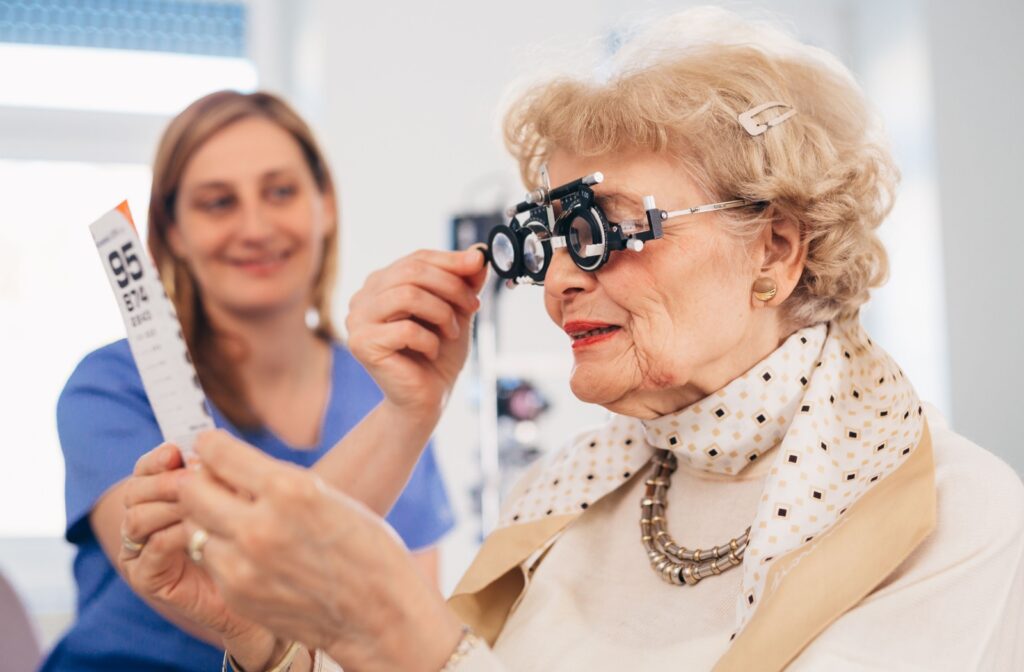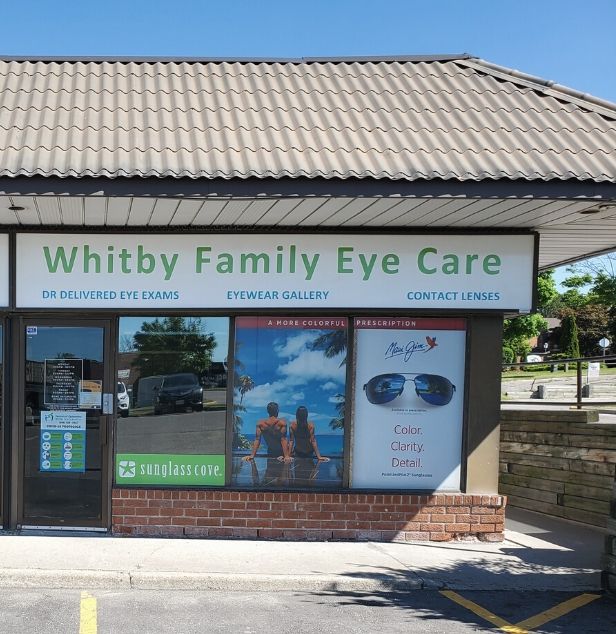It can be concerning to notice changes in your vision, especially if they occur suddenly. Sometimes, these changes happen gradually but take time for you to notice.
Natural changes in your eyes as you age could be the reason why your eyesight is getting worse. Refractive errors, such as presbyopia, are a normal part of aging and can typically be easily corrected with prescription glasses.
It’s important to recognize that there are other reasons, such as glaucoma, cataracts, or age-related macular degeneration (AMD), that could cause worsening eyesight. If you’ve noticed that you can’t see like you used to, a comprehensive eye exam is a good place to start.
Are Vision Changes Normal with Age?
Yes, vision changes are a normal part of aging. But understanding why these changes occur may help you identify potential concerns early and take the proper steps to maintain your eye health. Age-related eye issues are prevalent, but they can often be managed or corrected when caught early.
Presbyopia & Refractive Errors
If you’ve noticed yourself squinting to read your phone or holding a book farther away to see the text clearly, you may be experiencing presbyopia. This refractive error is a regular part of aging, caused by the gradual hardening and loss of flexibility in the lens of your eye. It typically becomes noticeable in your 40s and can be easily corrected with reading glasses or prescription lenses.
Refractive errors, like nearsightedness, farsightedness, and astigmatism, can also worsen over time. These conditions occur when the eye cannot properly focus light, and while they may not always be age-related, corrective lenses can help you see clearly.
Cataracts
Cataracts are a common eye condition among older adults. They occur when protein builds up in the eye’s lens, causing it to cloud over and reduce vision clarity. Many people with cataracts describe their vision as blurry, hazy, or as if they’re looking through a foggy window.
The good news is that cataracts are treatable with surgery, and it’s the most widely performed surgical procedure in Canada.
Glaucoma
Often referred to as the “silent thief of sight,” glaucoma is a group of eye diseases that can damage the optic nerve, typically due to abnormal internal eye pressure. It’s one of the leading causes of irreversible blindness, but many people don’t realize they have it because there are no symptoms in the early stages.
Regular eye exams are crucial for detecting and managing glaucoma early. Many treatments are available, from medicated eye drops to surgery, to help slow its progression.
Age-Related Macular Degeneration (AMD)
The macula is the part of your retina responsible for central vision. Over time, this area can deteriorate, leading to a loss of clear central vision. AMD is a leading cause of blindness in adults over age 50.
While there is no cure for AMD, early diagnosis and effective management strategies, such as lifestyle changes and specialized treatments, can help preserve your vision.

Signs You Need to Visit an Optometrist
Not every change in your eyesight is cause for immediate concern, but some signs warrant a visit to your optometrist right away. Here are a few symptoms to look out for:
- Persistent blurry or double vision
- Eye strain or headaches after reading, driving, or screen time
- Difficulty seeing at night or increased sensitivity to light
- Sudden flashes of light or floaters (small specks) in your vision
- Decreased peripheral (side) vision
- Discomfort or redness in your eyes
If you’re experiencing any of these symptoms, booking an eye exam can help you better understand what’s happening and determine the next steps to take.
Protect Your Eyes from UV Radiation
One thing these conditions have in common is that UV radiation is often a risk factor. UV rays from the sun can harm your eyes just as much as your skin. Prolonged exposure increases the risk of cataracts, macular degeneration, and even eye cancer. Protect your eyes year-round with UV-blocking sunglasses.
At Whitby Family Eye Care, we offer a selection of stylish prescription sunglasses that combine fashion with functionality. Explore our collection to give your eyes the protection they deserve.
Maintain a Healthy Lifestyle
Good overall health and good vision often go hand in hand. Here are a few healthy habits that support your eyes:
- Eat a balanced diet rich in vitamins A, C, and E, and omega-3 fatty acids.
- Stay hydrated to prevent dry eyes.
- Do not smoke and avoid secondhand smoke.
- Get regular physical activity to support healthy blood flow to your eyes.
Let’s Protect Your Vision Together
We’re passionate about helping you preserve one of your most valuable senses at Whitby Family Eye Care. If your eyesight has been changing or you want to check in on your eye health, our team is here to help. From comprehensive eye exams to stylish prescription sunglasses, we’ve got you covered. Request an appointment today, and let’s take steps to protect your vision for a brighter future.







